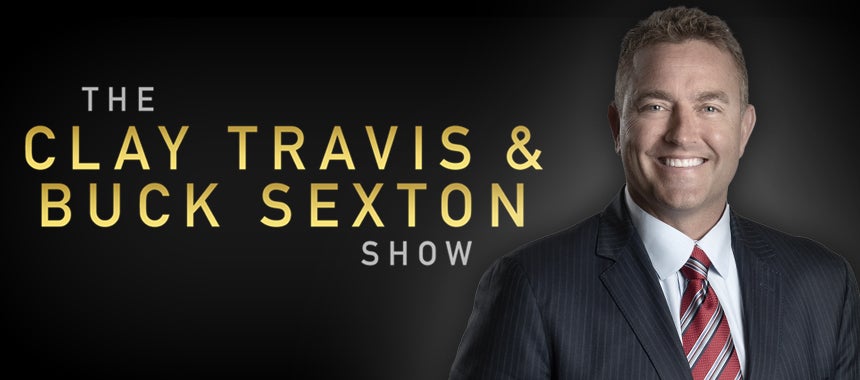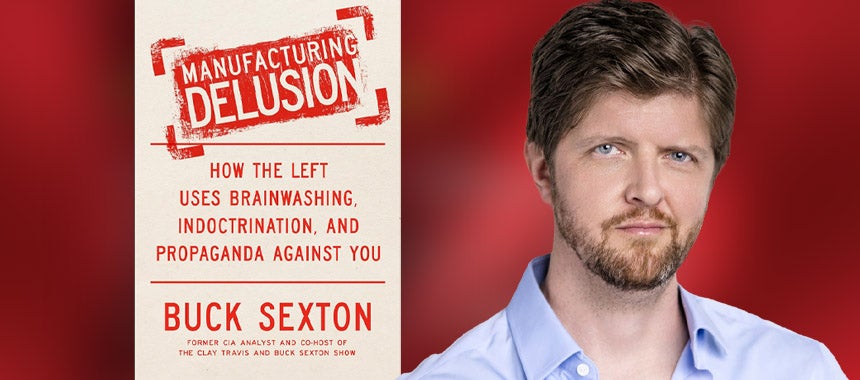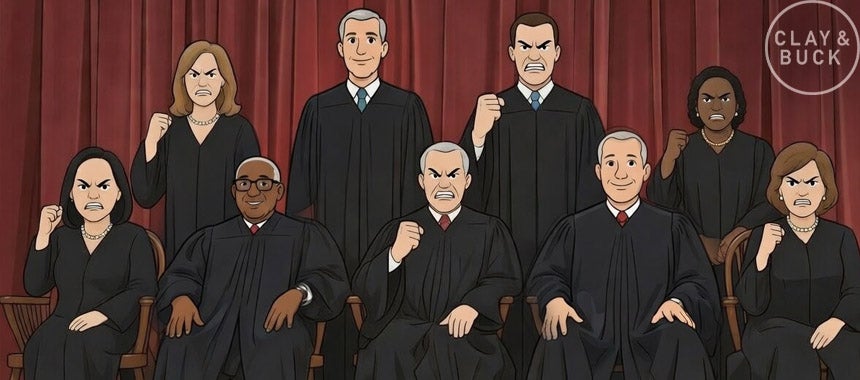Kirk Herbstreit, the Voice of College Football, on His Book
6 Sep 2021
CLAY: We are joined now by ESPN lead college football analyst, also one of the cohosts of College GameDay, Kirk Herbstreit. He’s got a great new book out, Out of the Pocket. Kirk, I appreciate you joining us, and I’ve got to start with this: It felt like college football was 100% normal. I mean, I really felt that.
I was in Knoxville for the Bowling Green-Tennessee game, and then I was in Charlotte for Clemson-Georgia. I watched, obviously — as I know you did — what was going on in Wisconsin, what was going on in Virginia Tech, what was going on all over this country. Full stadiums. It felt like — I know we had games last year, but that — things were back to normal. Did you get that sense too?
HERBSTREIT: Yeah. Yeah. How you doing, Bud? Yeah, I mean, I totally agree. It was for me. I saw highlights of the game at Knoxville, but I watched the Ohio State-Minnesota game. And just to see, you know, a tough environment and a full stadium, it just felt like college football. And that was kind of the kickoff to the weekend. And had games on Friday and obviously a full slate on Saturday.
The game last night… I can’t remember the last time I saw Doak Campbell looking the way it did last night. That was a full stadium, energy, passion, Notre Dame, Florida State, into overtime. It was like a Hollywood script with McKenzie Milton, who had a devastating, career-threatening, you almost wondered is he gonna be able to walk again-type of injury in ’18, and three years later he comes back and comes in late in the game to bring the ‘Noles back to tie the game and get into overtime.
It was unbelievable. So, yeah, it was great. We obviously all missed this last year. We had some stadiums with zero fans, some with 20% capacity. As you know better than anybody, college football is different, in my opinion, than the NFL. The pageantry, the tailgating, the sense of community, the marching bands, the cheerleaders, the student sections, that’s college football. And we finally got a taste of that this weekend.
CLAY: How much importance do you place upon that for the country’s normalcy? I started off show the today, Kirk, arguing that the width and breadth of college football fandom is sort of a heartbeat of Americana —
HERBSTREIT: Mmm-hmm.
CLAY: — in that regardless of who you root for, college football fans have a lot of in common. And being able to be back tailgating, being able to be back in full stadiums, the experience, whether it was Virginia Tech when Enter Sandman comes on and the crowd goes crazy or in Jump Around in Wisconsin — I don’t know if you saw the pictures — the red, white, and blue stadium that they had at Texas A&M,. Al of it is just, I think, so important to getting us back to a sense of normalcy.
HERBSTREIT: Well, and it’s grassroots America, right? I mean, you go to all these different communities around the country and depending on what region you’re in, I’ve always been blown away. I grew up in the Big Ten region, and when I started on College GameDay in 1996 — this is my 26th year — I was always so open-minded, intrigued to learn, to see how everybody gets ready for a game.
And I’ve just always paid attention to that. And whether you’re in the SEC or the Big 12, the Pac-12, or the ACC and everywhere in between, people are like, “I’ve had this parking spot if the games since 1982,” you know (chuckles), and it’s a real sense of community. The grandparents also went to that school, the parents went, now it’s their children’s chance to go to the school, like you are in Knoxville.
I mean, it’s very different than being a Titans fan, you know, and very different from being a Chargers fan or whoever your team is. It’s just incredibly different. I mean, I love all sports. I’m open to ’em all. I go to ’em all; I watch. But when you go to a tailgate at an SEC game or a Big Ten game, it’s an experience, and you really will feel…
People you never knew have the same color jerseys on that you might have, especially when your team’s on the road, and all the sudden there’s a connection. There’s fellowship. “Hey, come on over. Yeah, have a drink or have a sandwich,” and you’re just hanging out, talking with people, talking about the game and the anticipation of the game.
And I really feel, Clay, in college football, all of that stuff around the game is as big of an event as the game itself. And even the postgame, people get together; they’re talking about the game, “Can you believe that third-down play?” And I just keep going back to community because I feel that more in college football than any other sport that I go and watch in person.
CLAY: My cohost, Buck Sexton here… You’re gonna be blown away by this, Kirk. He’s never been to a college football game in his life. So I am gonna get him down for, I believe, Ole Miss-Alabama —
HERBSTREIT: There you go.
CLAY: — which I think his mind will just be blown. He’s also a single guy so I told him he’s gonna have to keep his head on the swivel with all the girls.
HERBSTREIT: (laughing)
CLAY: But what would you say to people out there right now, Kirk, who have maybe never experienced a big college football game? We got listeners in New York City. You know, they may be Giants or Jets fans, they may not even be that big of sports fans. What would you tell them they’re missing by not having been to a big college football game?
HERBSTREIT: Well, I work with a lot of people, you know, when I’m up in Connecticut, I work with a lot of people over the years that grew up in the New York or Boston area, wherever it might be, and they’re more into the rocks or they’re into Yankees or they’re into the Jets or NBA, whatever it is, and that’s great. That’s how they grew up. They’ve then all the sudden been assigned to work on College GameDay.
 And then all the sudden they find themselves in Baton Rouge, Louisiana, and all the sudden you talk to ’em after the game and they’re working and they’re like, “Oh, my God. I didn’t know it was like this. I had no idea it was like this. This is so great!” It’s so funny to watch a person who might be in their twenties or thirties or forties and they’ve never been to a big time college football experience.
And then all the sudden they find themselves in Baton Rouge, Louisiana, and all the sudden you talk to ’em after the game and they’re working and they’re like, “Oh, my God. I didn’t know it was like this. I had no idea it was like this. This is so great!” It’s so funny to watch a person who might be in their twenties or thirties or forties and they’ve never been to a big time college football experience.
‘Cause maybe it’s the Ivy League or maybe it’s a small school — you know, D3 — that they’ve been to on the East Coast. And they go to a big-time college football game, and they’re just blown away. Like I say, the marching bands alone at some of these stadiums will have you… You’ll have chills just kind of watching that part and the way the fans respond to the marching bands. That’s the beginning of it, and the teams come out.
I think the only thing that’s close in America to European soccer — like the passion that you see when you turn on a game and you hear the chants and all the emotion — is college football. And again, I’ve covered NFL, been around it. The playoffs are a prime time — like a Monday night game or a Thursday night game — it’s the only time the NFL comes remotely close to what college football offers, on a noon game that might be two top 15 teams going against each other. So you have to circle back to me and let me know how Buck — how he does and what his experience is like. But, yeah, you just… It’s just a different — it’s a very different — passionate crowd in comparison to what you get in the NFL.
CLAY: You communicate with millions of people to call games, and obviously they’re uniquely used to your voice. It’s a soundtrack, in many ways, of college football. How did you find it to be different and/or more challenging or less challenging to write a book, Out of the Pocket, which is out now? How was that communication experience for you different?
HERBSTREIT: Great question. When Gene Wojciechowski, who is the coauthor, approached me about the book idea, it was during the pandemic. I just felt like a good time to reflect. And there’s football in the book. There’s broadcasting in the book. Kind of my journey in that world. But this is a very different book. The book’s about fatherhood; I talk a lot about my dad. My dad was kind of my hero.
He played at Ohio State. He was a captain there. And I just grew up in Ohio. And he would take me to the games at Ohio Stadium. I’d go in the locker room after the game and sit on Woody Hayes’ lap and look up through his glasses with his hat on and put Archie Griffin’s helmet on when I was 5, 6 years old, and I was hooked. And my parents divorced when I was 8.
And I kind of lived in a neighborhood like the movie The Sandlot where you’re always outside playing. We didn’t, obviously, have video games or the internet or like, you know, we just… People my age, we just were outside, you know, playing freeze tag or four square, or Big Wheels or whatever. You know, we were just outside. And that world just disappeared in the blink of an eye. My parents divorced, and I moved.
 And I ended up going to eight schools in nine years, and both my parents were married, both divorced again. I just was kind of bouncing around and struggling, and I’m a very quiet, shy, person — and especially as a kid, very introverted — and so when you move around like that, you kind of hold a lot in. And so you saw some stuff and didn’t communicate how I felt. I don’t really communicate in general how I feel.
And I ended up going to eight schools in nine years, and both my parents were married, both divorced again. I just was kind of bouncing around and struggling, and I’m a very quiet, shy, person — and especially as a kid, very introverted — and so when you move around like that, you kind of hold a lot in. And so you saw some stuff and didn’t communicate how I felt. I don’t really communicate in general how I feel.
And so to open up in a book (chuckles) and talk about things I’ve compartmentalized emotionally for over 40 years was really a challenge for me. Kind of like that might have Good Will Hunting with Matt Damon and Robin Williams, and they just kind of sit and look at each other the first couple visits. It’s kind of how it was for me with Gene, until I finally started to get more and more comfortable with him and just started to open up.
And so it’s a book that I hope will resonate with some people. I hope that they’ll see and hear a story that maybe they experienced something that they struggled with. Everybody has trials and tribulations that they’ve gone through. Today. You know, you’re always gonna have adversity in life. There’s a saying you’re either in a storm, you’re coming out of a storm, or you’re heading into a storm.
And that can be as an employee, that can be as a husband or a wife, it can be as a father or a father or a mother. We all deal with stuff. And instead of hiding from the stuff I’ve dealt with, I talk about it openly and become very vulnerable in this book. And like I said, my whole hope is… It’s not a how-to book. It’s more of a “here I am” kind of book, and I just hope it just resonates and people will be able to relate to it in some way.
And it’s okay to fail. It’s okay to struggle. And I think sometimes we all try to avoid that, right, whether it’s with our kids… It’s really hard to watch our kids struggle. I call it the snowplow generation of parenting. If it’s a bad teacher, instead of talking to your kid about, “You gotta figure this out. We gotta work through this,” it’s, “No, no, no! We’ll get ’em in a different class, get rid of that teacher.”
If it’s a bad coach, it’s not the kids’ fault; it’s the coach’s fault; we gotta find a new team. You know, and so I feel like it’s hard for me to watch my kids go through struggles. And at the same time, they’ve been through a lot of them, and they’ve come through, and it become better for it. And I talk about a lot of different stuff regarding adversity and challenges, both as a kid and as adult.
CLAY: Kirk Herbstreit with us right now on the Clay Travis & Buck Sexton Show. Last question for you, Kirk. If college football didn’t exist, you would be where right now?
 HERBSTREIT: My family didn’t have any money when he grew up. So I got a scholarship which allowed me to pay for school. That’s why when we talk about name, image, and likeness, I look at a scholarship as a game-changer for me. It got me started in life. I would have probably joined the Marines or gone to the Army, I would guess I don’t know. I have no idea.
HERBSTREIT: My family didn’t have any money when he grew up. So I got a scholarship which allowed me to pay for school. That’s why when we talk about name, image, and likeness, I look at a scholarship as a game-changer for me. It got me started in life. I would have probably joined the Marines or gone to the Army, I would guess I don’t know. I have no idea.
College football, that’s why I love it so much, why I’m so passionate and so grateful for the sport and it’s why I get so grateful sometimes when people talk about, “What’s in it for me? I need to be paid,” when you have an opportunity to build a relationship with folks when you go to a school, and you can take advantage of the system instead of the system taking advantage of you. And I’m a perfect example of that.
I’m an anomaly. Usually… Think about people that you watch broadcast games. You know them from their playing days. They’re Hall of Famers or they won Super Bowls or they won Heismans or whatever it might be. I was just a solid quarterback in the Big Ten, and yet my relationship with Ohio State opened doors for me first as a local broadcaster and then two or three years later I caught a break and got to a national level. And those doors never opened for me if I don’t go to Ohio State.
So every day I’m grateful for that relationship and the fact that I went there. And I wish more players would try to look at it through that lens as opposed to, “The school owes me money,” you know, “the system owes me money.” I think you need to flip that way of looking at it and try to figure out ways that you can take advantage of the relationships that we’re lucky enough to have.
CLAY: Kirk, fantastic stuff, as always. We’ll be watching all season long, encourage people to check out your book, Out of the Pocket, and good luck tonight.
HERBSTREIT: Thanks, man. Always great to come on with you. Good luck with all your new endeavors and congrats on everything.
CLAY: I appreciate that. That’s Kirk Herbstreit.
Recent Stories
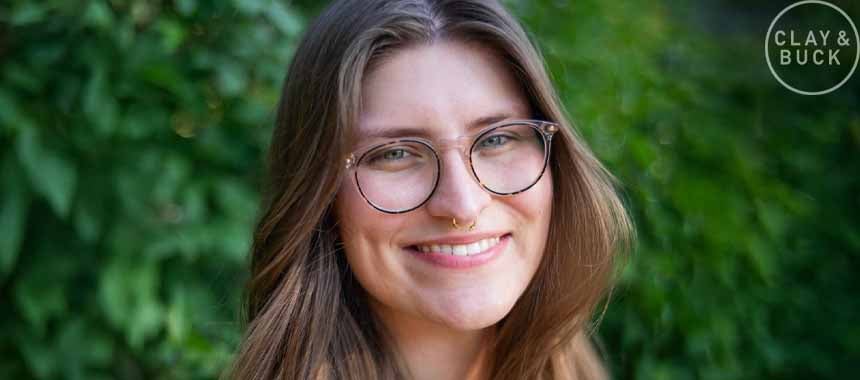
Soren Aldaco: A Detransitioner's Story
One of our most powerful interviews in recent memory. Don't miss it.
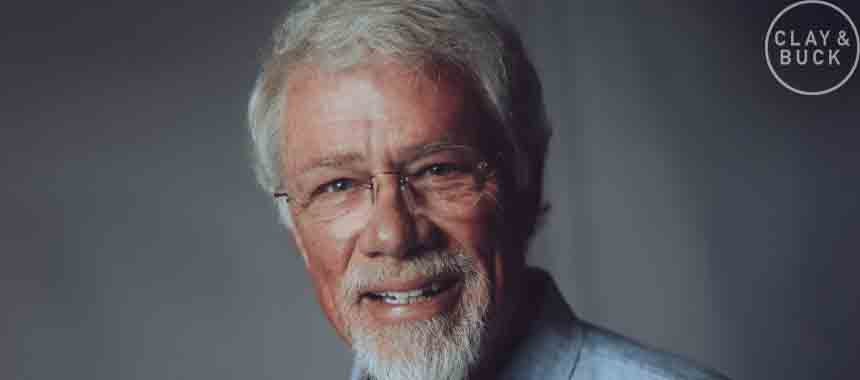
Jeff Hays, Director of MAHA Uncensored, a Hard Look at the Business of American Medicine
An inside look at what drives the American medical system.
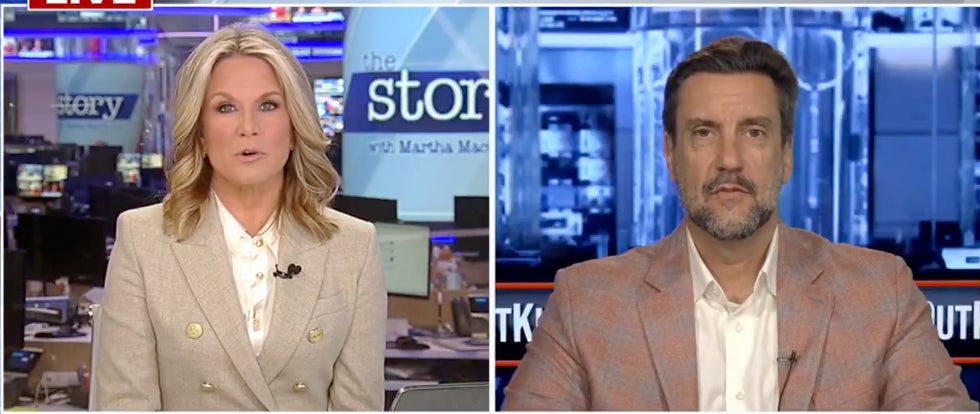
Clay Praises Alysa Liu's Gold Medal for the USA
Miss Clay on The Story with Martha MacCallum? Watch it here.


